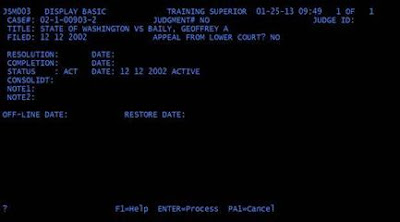 Dropouts come in all ages.
Sure, we know that as many as 20 out of every hundred schoolkids will never make
it to commencement. But did you know that some youngsters, for
all practical purposes, are actually "dropping out" of school emotionally
in the first, maybe the second grade?
Dropouts come in all ages.
Sure, we know that as many as 20 out of every hundred schoolkids will never make
it to commencement. But did you know that some youngsters, for
all practical purposes, are actually "dropping out" of school emotionally
in the first, maybe the second grade? House Education Committee members this year have examined the dropout quandary at length, tackling it from a variety of real-world perspectives. Those testifying in committee meetings offered a number of observations, including the above-noted assertion that many of our very youngest students are checking out emotionally in their first years of school.
Hammered home time and
again were the sad facts that dropouts tend to:
· Make up a big percentage of the ranks
of the unemployed.
· Take home meager wages when they do
work.
· All too often tumble into the
criminal-justice system.
That is very unfortunate news, especially given the Washington State School Directors' Association (WSSDA) issued a summary recently of the big steps many districts have taken to keep young men and women in school. Their e-newsletter reviews the high level of success some of these intervention and prevention programs have worked in diverse districts around the state. The Sunnyside School District in the lower Yakima Valley, for instance, lifted its graduation rate an incredible 38 points in a recent five-year period -- from 41 percent in 2007 to 79 percent in 2012. The Spokane Public Schools worked to push on-time graduation up from a rate just above 62 percent in 2008-2009 to way more than 76 percent in 2010-2011.
Read this story in Spanish.
Read this story in Spanish.










